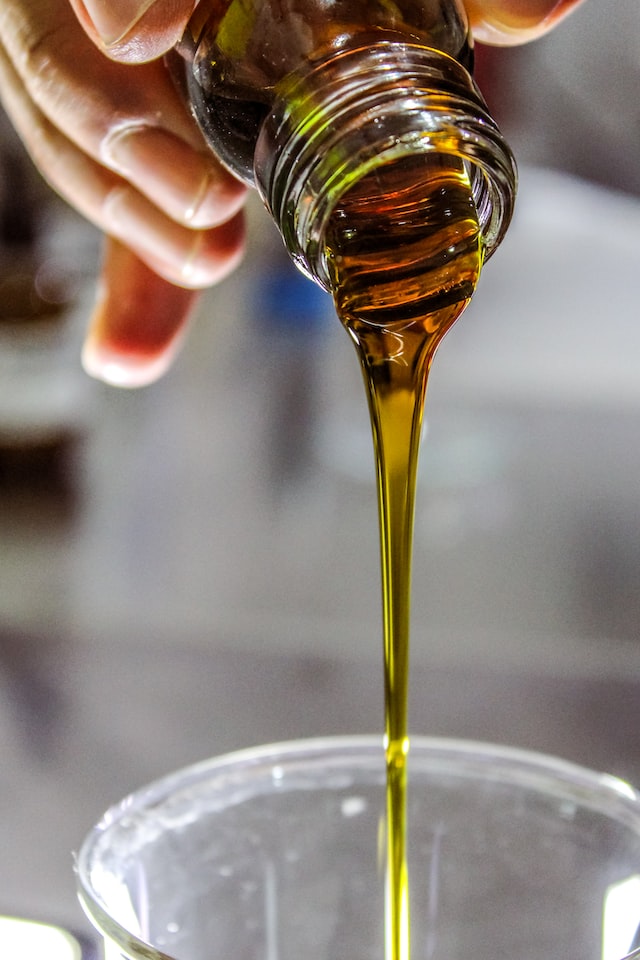Hemp seed oil is high in beneficial fats, such as omega-3 and -6 fatty acids. These fatty acids have been shown to help lower high blood pressure and protect against cardiovascular (heart) disease.
Hemp seed oil is also an excellent natural pain reliever. It helps to reduce inflammation and ease joint, organ, and gland pain.
Rich in linoleic acid
Hemp seed oil is strong in linoleic acid, which can cut cholesterol and lessen the risk of heart disease and high blood pressure. It also has anti-inflammatory properties that help to relieve pain and inflammation in the body.
Besides linoleic acid, the hemp seed oil is also high in gamma-linolenic acid (GLA). This omega-3 essential fatty acid is known to help control insulin resistance and manage a healthy weight which what is hemp seed oil good for. In addition, it also helps to reduce biomarkers of body inflammation and metabolic syndrome.
It is suitable for your skin: Hemp seed oil can smooth out small wrinkles and stimulates cell renewal. It can also moisturize your skin and strengthen the barrier that protects it against bacteria.
Hemp seed oil is used in various cosmetic products, including soaps, creams, lotions, and lip balms. It is an excellent emollient and can be used as an alternative to petroleum-based ingredients.
Rich in gamma-linolenic acid
Gamma-linolenic acid (GLA) is a vital fatty acid that the body needs but cannot make from other sources. This omega-6 fatty acid is known for its anti-inflammatory properties. It is also used for weight loss and to soothe irritated skin.
GLA from linoleic acid, another essential fatty acid, by the enzyme delta-6-desaturase. It then undergoes oxidative metabolism by cyclooxygenases and lipoxygenases to produce a series of anti-inflammatory eicosanoids, including prostaglandins of series one and leukotrienes of series 3.
Hemp seed oil contains high levels of gamma-linolenic acid. This essential fatty acid helps reduce inflammatory protein production in the body called cytokines.
Rich in omega-3 fatty acids
Hemp seeds and hemp seed oil are rich sources of omega-3 fatty acids, which are important for good health. They are also a source of gamma-linolenic acid, which may reduce inflammation and help improve heart health.
These fatty acids can be found in fish and plant foods, including flaxseed and hemp seeds. They can also be absorbed through supplements.
The names of these fatty acids, which include alpha-linolenic acid (ALA) and eicosapentaenoic acid (EPA), and docosahexaenoic acid (DHA), are based on the location of the first double bond in their chemical structure. For example, ALA is the type of omega-3 found in flax and hemp seeds.
They are essential fatty acids because our bodies cannot make them independently. They are needed for several important functions, from muscle activity to cell growth.
Hemp seed oil contains the ideal balance of omega-3 and omega-6 fatty acids. It is also a high-quality source of g-linolenic acid and stearadonic acid. Supplementation with these fatty acids can help prevent and treat several diseases.
Rich in antioxidants
Antioxidants are a wide range of compounds that fight free radicals in your body. They act synergistically to protect you from aging, disease, and other oxidative stress.
Hemp seed oil is abundant in antioxidants, which can help prevent heart disease and other health issues. It also lowers irritation and aids in the healing of dry skin.
A balanced diet that includes a range of whole plant foods such as fruits, vegetables, grains, nuts, seeds, and legumes is the greatest source of antioxidants. These are the only sources of antioxidants that work in the body.
Including hemp seed oil in your diet is a simple method to increase your antioxidant consumption. In addition, studies have shown that people who eat a plant-based diet are at a lower risk of developing many diseases and conditions.
Hemp seed oil contains omega-3 fatty acids, which are necessary for the health and function of your skin and neurological system. They can also promote the growth of new cells, which can help to rejuvenate your skin.
Rich in phytosterols
Phytosterols are plant-derived compounds that can compete with dietary cholesterol to be absorbed by the intestine, which may lower blood cholesterol levels. They are found in many foods, including vegetables, fruits, whole grains, legumes, nuts, and seeds.
Several studies have shown that eating a diet rich in phytosterols can reduce the risk of heart disease. It’s best to talk with a dietitian about developing a healthy eating plan that includes phytosterol-rich foods.
These foods include nuts, seeds, and vegetable oils. In addition, processed foods often contain added phytosterols.
The most common sterols are b-sitosterol, campesterol, and stigmasterol. They account for about 65%, 30%, and 3% dietary sterols, respectively.
Taking a daily dose of phytosterols can help reduce LDL (bad) cholesterol. It is because phytosterols block the absorption of cholesterol during the digestion process. They also have a mild anti-inflammatory effect. In addition, consuming a phytosterol-rich diet reduces the growth of certain bacteria that contribute to inflammation.





